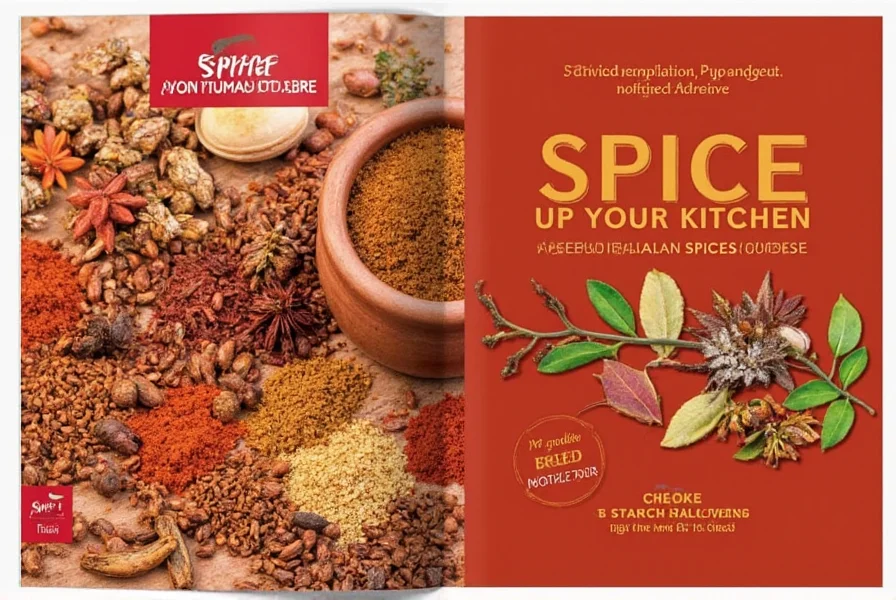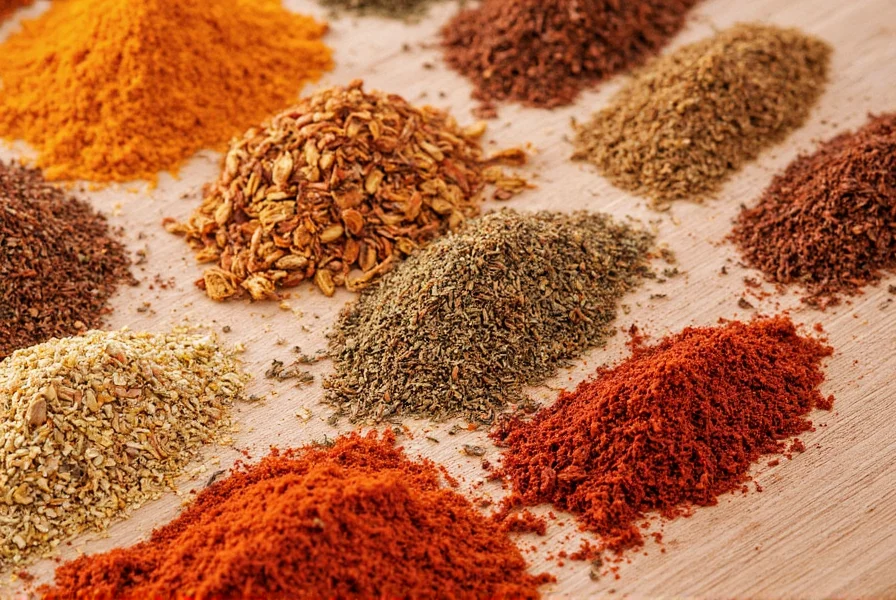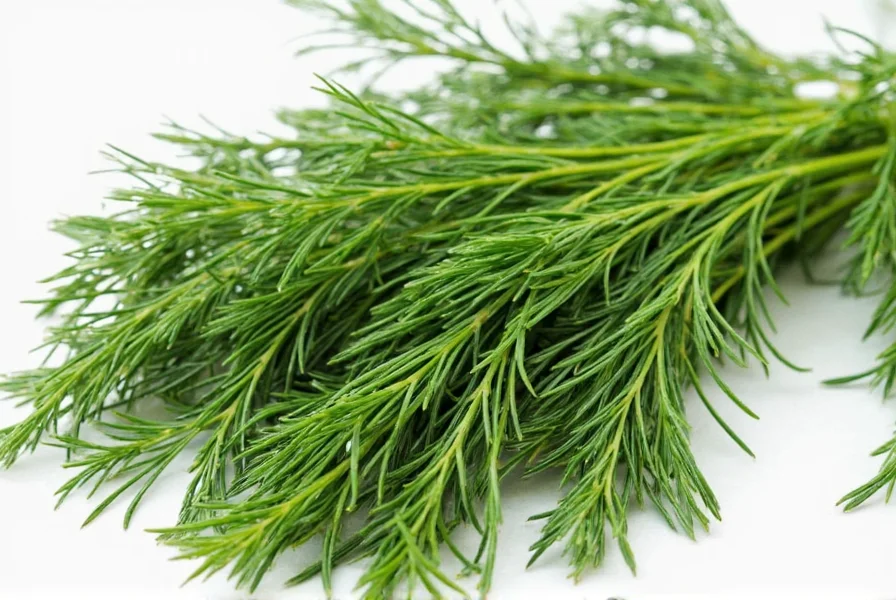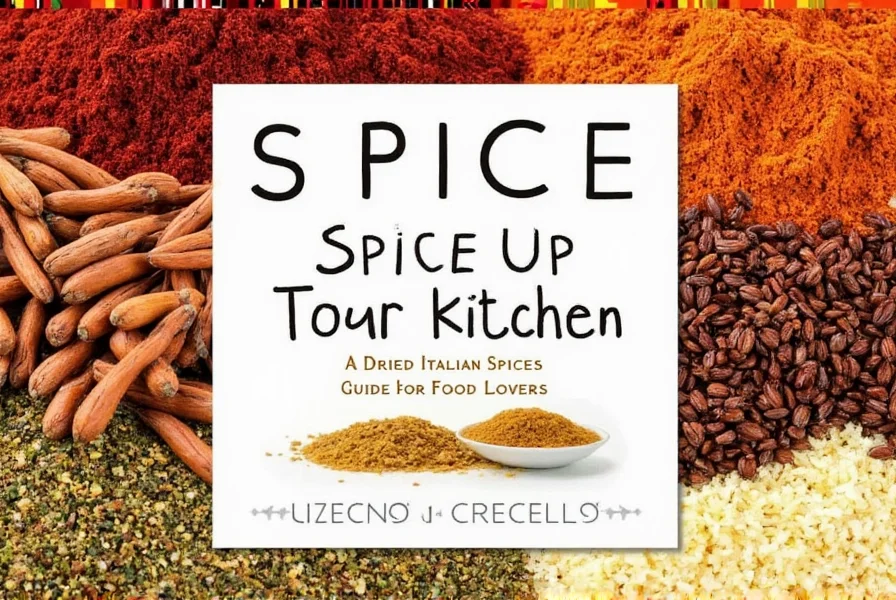Spice Up Your Kitchen: A Dried Italian Spices Guide for Food Lovers
Table of Contents
Introduction to Dried Italian Spices
If you've ever wandered through an Italian market or caught a whiff of a simmering sauce, you’ve likely been greeted by the warm, earthy aromas of dried Italian spices. These are more than just flavor enhancers—they’re the soul of many traditional Italian dishes, from hearty stews to fragrant pasta sauces. Whether you're a seasoned cook or just starting out, understanding and using these spices can elevate your cooking to new heights.

Dried Italian spices are often blends or individual ingredients that have been sun-dried or dehydrated to preserve their potency. They bring depth, complexity, and authenticity to your recipes. From oregano to basil, each spice has its own unique role in the kitchen. In this guide, we’ll explore how to use them effectively, what makes them special, and how to choose the best ones for your needs.
Practical Tips for Using Dried Italian Spices
Using dried Italian spices is simple, but mastering their application can make all the difference. Here are some tips to help you get the most out of your spice collection:
- Use Freshness Matters: Always check the expiration date on your spices. Even if they look good, old spices lose their potency over time.
- Grind Before Use: For spices like oregano or thyme, grinding them just before use releases more flavor.
- Start Small: Dried spices are more concentrated than fresh ones. Begin with a small amount and adjust as needed.
- Pair Wisely: Certain spices go well together. For example, basil pairs beautifully with tomatoes, while rosemary complements roasted meats.
- Store Properly: Keep your spices in airtight containers away from heat, light, and moisture to maintain their quality.

These tips are not just helpful—they’re essential for any home cook looking to unlock the full potential of dried Italian spices. Whether you're making a quick pasta dish or a slow-cooked ragù, the right spice can transform your meal from ordinary to extraordinary.
In-Depth Explanation of Popular Dried Italian Spices
Now that you know how to use dried Italian spices, let’s take a closer look at some of the most popular ones and what makes them so special:
| Spice | Flavor Profile | Best Uses | Origin |
|---|---|---|---|
| Oregano | Earthy, slightly bitter, and aromatic | Pizza, tomato-based sauces, grilled vegetables | Italy |
| Basil | Sweet, minty, and fresh | Tomato sauces, pesto, salads | Italy |
| Rosemary | Piney, woody, and slightly citrusy | Roasted meats, potatoes, bread | Italy |
| Thyme | Mild, floral, and slightly lemony | Stews, soups, roasted chicken | Italy |
| Marjoram | Delicate, sweet, and slightly licorice-like | Meatloaf, stuffing, egg dishes | Italy |

Each of these spices brings something unique to the table. Oregano is the backbone of many Italian dishes, especially those with tomato-based sauces. Basil, on the other hand, is the star of pesto and adds a fresh, vibrant note to salads and pasta. Rosemary is perfect for roasting, giving meat and vegetables a deep, woodsy flavor. Thyme and marjoram add subtle layers of complexity, making them ideal for slow-cooked meals and delicate dishes.
Understanding the flavor profiles of these spices allows you to experiment with different combinations and create your own signature dishes. Don’t be afraid to mix and match—sometimes the best flavors come from unexpected pairings.
Buying Guide: How to Choose the Best Dried Italian Spices
With so many options available, choosing the right dried Italian spices can feel overwhelming. Here’s a detailed guide to help you make informed decisions:
What to Look For
When shopping for dried Italian spices, keep the following in mind:
- Freshness: Look for spices that are bright in color and have a strong aroma. Avoid anything that looks dull or has a musty smell.
- Source: Try to buy from reputable brands or local spice shops that specialize in high-quality products. Some spices may be blended with fillers or lower-quality ingredients.
- Processing: Opt for whole spices that you can grind yourself, as they tend to retain more flavor than pre-ground varieties.
- Certifications: If possible, look for organic or fair-trade certifications to ensure quality and ethical sourcing.

Popular Brands and Products
Here are some top-rated dried Italian spice products that are worth considering:
- Barilla Oregano: Known for its bold, authentic flavor, this oregano is perfect for pizza and pasta sauces. Ideal for both home cooks and professional chefs.
- San Marzano Basil: This high-quality basil is ideal for making fresh pesto or adding a burst of flavor to tomato-based dishes. Great for anyone who loves Italian cuisine.
- Il Forno Rosemary: With a rich, piney aroma, this rosemary is perfect for roasting vegetables or seasoning bread. A must-have for any spice cabinet.
- Splenda Thyme: A versatile spice that works well in soups, stews, and meat dishes. Its mild, floral notes make it a great addition to many recipes.
- La Torre Marjoram: This delicate spice is ideal for enhancing the flavor of meatloaf, stuffing, and egg dishes. Adds a subtle, sweet undertone to your meals.
These products are not only flavorful but also convenient for everyday use. Whether you're making a quick weeknight dinner or preparing for a special occasion, having a reliable selection of dried Italian spices can make all the difference.

Use Cases and Target Audience
Each of these products is suited for different use cases and audiences:
- Barilla Oregano: Best for pizza lovers, pasta enthusiasts, and anyone who wants a classic Italian touch in their cooking.
- San Marzano Basil: Perfect for foodies who enjoy making homemade pesto or want to add a fresh twist to their dishes.
- Il Forno Rosemary: Ideal for bakers, grill masters, and those who love roasting vegetables or meats.
- Splenda Thyme: Great for home cooks who want to add depth to soups, stews, and roasted dishes.
- La Torre Marjoram: Suitable for anyone who enjoys creating savory, layered flavors in their meals.
No matter your skill level or culinary preferences, there's a dried Italian spice that fits your needs. Experiment with different blends and see which ones become your favorites.

Conclusion
Dried Italian spices are more than just a pantry staple—they’re a gateway to authentic, flavorful cooking. Whether you're making a simple tomato sauce or a complex risotto, these spices add depth, character, and tradition to your dishes. With the right knowledge and a bit of experimentation, you can turn ordinary meals into unforgettable culinary experiences.
Remember, the key to great cooking lies in the details—and that includes the spices you use. So next time you reach for your favorite jar, take a moment to appreciate the history, craftsmanship, and flavor behind every pinch of dried Italian spice.

As you continue your journey through the world of spices, don't forget to enjoy the process. After all, cooking is about more than just following recipes—it's about creating memories, sharing flavors, and savoring the joy of good food.











 浙公网安备
33010002000092号
浙公网安备
33010002000092号 浙B2-20120091-4
浙B2-20120091-4